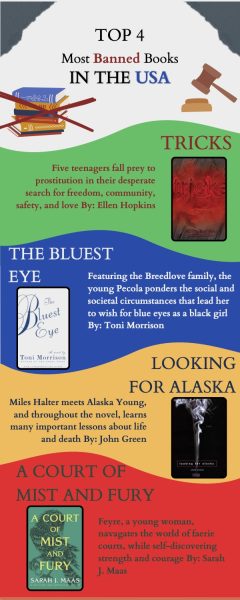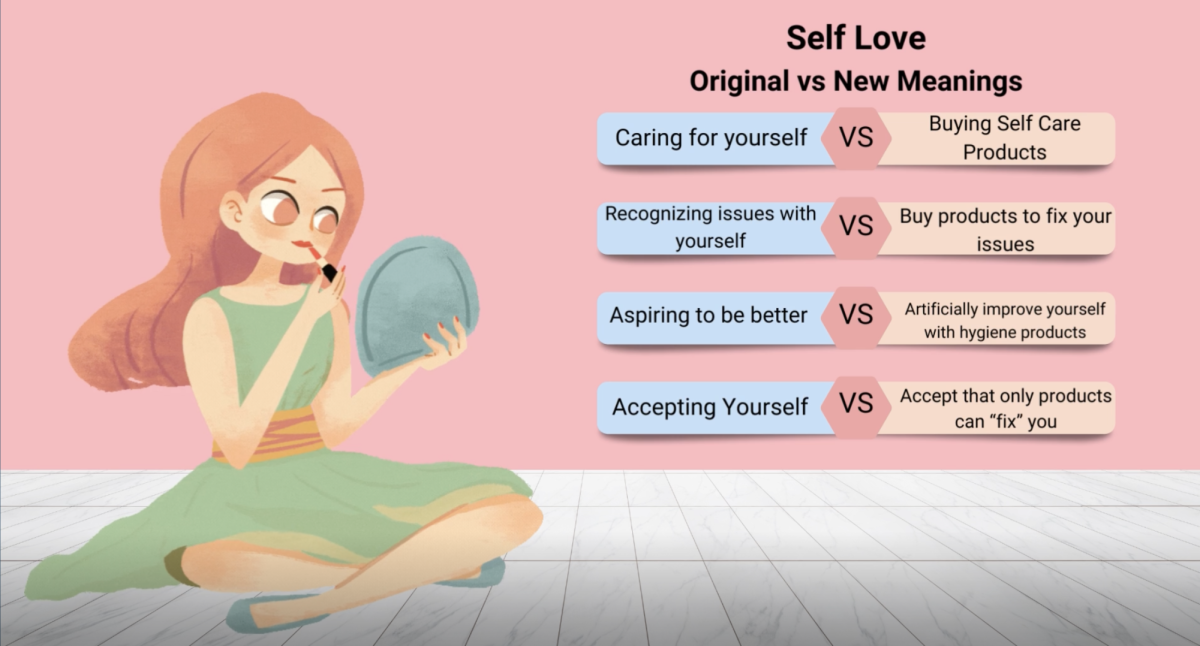
Assault, rape, race, Homosexuality or Transgender (LGBTQ+) themes, these are but a few examples of the topics targeted in book banning campaigns across the country. Book banning is not a new concept in America, in 1637, Thomas Morton published the New English Canaan, which was promptly banned for its anti-puritan ideas, according to Harvard.edu.
More modern examples of banned books include, Thirteen Reasons Why, Tricks and Crank. The main culprit for these book bans is the content within. Almost 50 percent of all banned books are banned expressly for their themes of violence or abuse, according to pen.org.
Reasons for banning books range from mental health, race, and sexual content. All issues in which young adults and teenagers would be facing growing up in our problem-stricken world. When looking into why these issues are specifically targeted, the troubles turn political.
Many political advocacy groups that support book bans are conservative in nature. This is because of the long history of keeping negative subjects (subjects such as assault, rape, and other sexually explicit content) away from children. While the sentiment stands, topics of race and general sexuality are also being suppressed, topics which are obviously not negative in nature.
The taboo nature of race and sexuality falsely demonstrated at book ban meetings can only be traced back to white/straight supremacy. This is because acknowledging other races and sexualities like queer identity and black, indigenous and other people of color leads to a critical look into the dominant race and sexuality in America, the historically dominant, white and straight.
The history of whiteness in America is difficult to untangle, due to many misconceptions about where it comes from. The concept is not from any single country like Spain, Germany, or Ireland. Even people of those nationalities were at some points in American history not considered white. White for this reason is a blanket term to describe the common culture in America, resistant to other cultures like Black, Hispanic, or even Traditional European.
The same principles are true for heterosexuality in America. Since its inception, heterosexuality has been the norm in society, which did not change with the formation of the United States. The presence of homosexuality was covered and veiled behind heavy coats of homophobia, due to its perceived alien nature.
Fear of the unknown drives book banning activities in large parts of the United States. Because of the straight, white supremacy that still dominates the United States, the fear of anything not straight or white reigns supreme, so if a book displays that type of content, it will likely get shunned. This is the situation with many books being banned across the country today.
In Omaha Public Schools, the list of challenged/banned books is long and filled with LGBTQ+ themes. Beyond Magenta, Drama and This Book Is Gay, all find themselves put on the list for the use of offensive language and LGBTQ+ themes, according to bibliocommons.org. The prohibition of these books makes it harder for teens to express their gender and understand the plights of other LGBTQ+ teens.
Librarian Gretchen Baijnauth at Omaha North High School dislikes the practice of book banning, due to its ability to strip away books that students can relate to and grow from.
“I think one of the things that is detrimental when books are banned from schools, is that it is taking books that could relate to particular students away from those students,” Baijnauth said. “A lot of times people challenge books before they’ve even read the entire book.”
Baijnauth brings up good points regarding book bans, particularly about the preservation of student’s freedoms under the first amendment.
“I am a huge supporter of the first amendment, and I think that a student’s choice of book could fall under the first amendment,” Baijnauth said. “One group of people should not remove books from an entire group.”
Withdrawing content from young minds can affect the way they develop and mature. Taking away a student’s freedom to choose also limits their available options, which in turn limits their access to knowledge and alternative ideas that may give the reader a reason to grow.
The banning of books is an act of censorship. Censorship is the suppression of media production that is considered obscene, or politically unacceptable. While censorship can be used for good, like to protect an individual’s privacy, in the case of many book bans, it is used for harm. Opponents to book bans claim they take away a student’s right to think for themselves, according to pen.org.
The truth of the matter is, withholding and gatekeeping knowledge has traditionally led to dark and twisted ends. Nazi Germany held book burning rallies, with books critical of Nazi ideology being thrown into large bonfires. While book bans are a far cry from book burns, the end goal remains the same, suppression of freedom of thought and the annihilation of individual rights.



